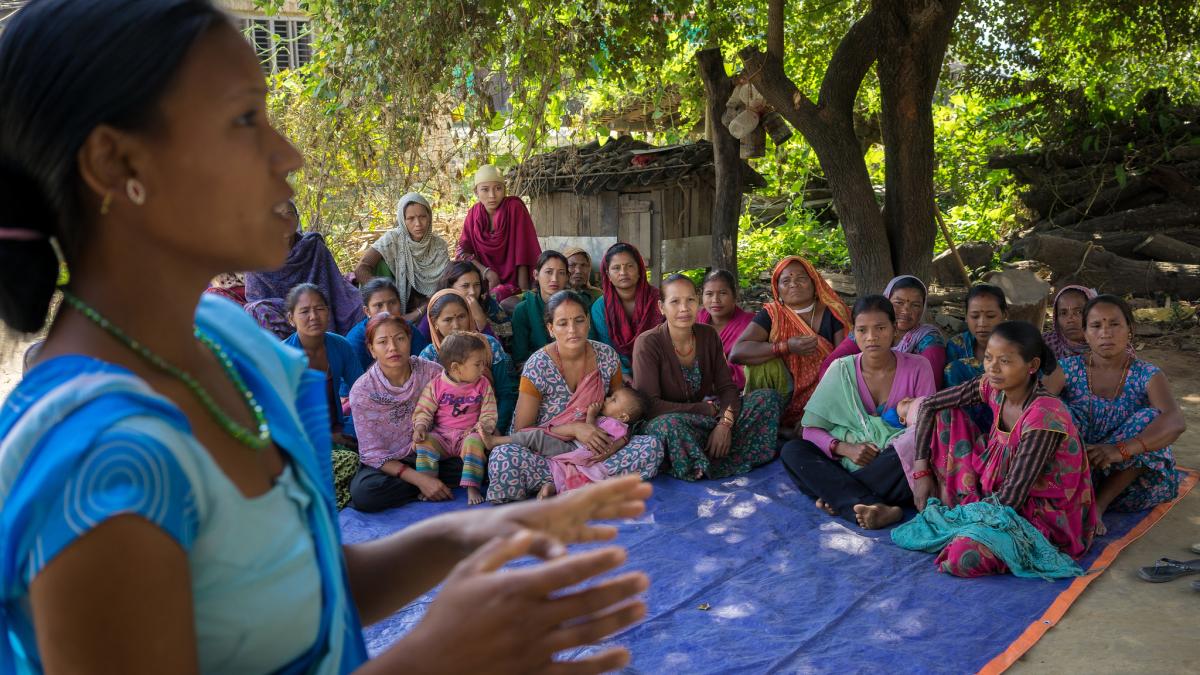At USAID, localization is the set of internal reforms, actions, and behavior changes that the Agency is undertaking to ensure our work puts local actors in the lead, strengthens local systems, and is responsive to local communities.
USAID’s approach to localization is informed by over a decade of experience showing that local leadership is critical for greater equity, effectiveness, and sustainability. The widespread consensus that development and humanitarian assistance must enable local actors to set their own agendas, develop solutions, and bring their leadership and resources to make those solutions a reality is why we have prioritized advancing localization by:
- Adapting our policies and programs to foster locally led development that is tied to each country’s unique political, social, cultural, economic, and environmental conditions, including through local systems practice and local capacity strengthening;
- Shifting power to local actors, including, with an inclusive development lens, those from marginalized and underrepresented groups, and promoting space for them to influence and exercise leadership over priority setting, activity design and implementation, and measuring and evaluating results;
- Channeling a larger portion of funding directly to local partners while ensuring accountability for the appropriate use of funds and achievement of development and humanitarian results; and
- Serving as a global advocate and thought leader, using our convening power, partnerships, voice, and other tools of development diplomacy to catalyze a broader shift toward locally led development.
Localization Progress Report
USAID is committed to shifting funding and decision-making power to the people, organizations, and institutions that are driving change in their own countries and communities.
Localization: Work With USAID
WorkwithUSAID.gov is a free resource hub created to help you learn what USAID does and how your organization can partner to improve lives and livelihoods around the world.
Localization Stories
Stories of Localization in action at USAID.
Local Capacity Strengthening Policy
The Local Capacity Strengthening Policy guides USAID decisions about why and how to invest in the capacity of local partners to better achieve inclusive and locally led development.
Donor Statement on Supporting Locally Led Development
(Announced on December 13, 2022 at the 2022 Effective Development Cooperation Summit in Geneva, Switzerland.)
Local, Faith, and Transformative Partnerships
Partnerships are at the core of USAID’s work. That’s why USAID is finding ways to strengthen, expand, and diversify its partner base.
Measuring Progress on Localization
To measure our localization progress, USAID will use a suite of methods and metrics to capture changes to our business processes, monitor program performance, evaluate our outcomes and impact, and learn with partners and local communities. As USAID shifts how we work with local partners and systems, we will also learn, adapt, and update this framework for measuring our progress.
Localization at USAID: The Vision and Approach
Today’s global development and humanitarian challenges are vast, demanding, and complex. They are also inherently local, shaped by the unique histories, power dynamics, and other factors specific to each context in which they occur.
USAID Policy on Locally Led Assistance
The Locally Led Humanitarian Assistance Policy outlines USAID’s vision and goals for advancing locally led assistance in our humanitarian work.











